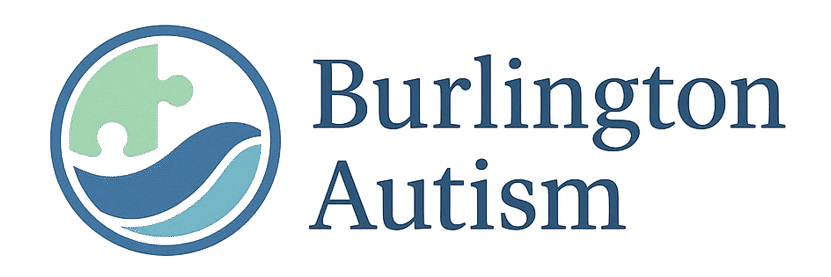Navigating BC Autism Funding: A Comprehensive Guide
Explore BC autism funding options, eligibility, and resources. Discover how to secure financial support for autism care today!
Autism Spectrum Disorder (ASD) is a developmental condition that affects how a person thinks, interacts with others, and experiences the world around them. In British Columbia, numerous resources are available for families and individuals seeking support for autism, primarily through funding programs. Many families face unique challenges, including financial burdens, when accessing the services and therapies necessary for their children’s development. Understanding BC autism funding can empower families to make informed decisions about the resources available to them and help them navigate the often complex landscape of support services.
Understanding BC Autism Funding Initiatives
The government of British Columbia offers various funding initiatives aimed at supporting individuals with autism and their families. These programs can range from direct financial assistance to funded services and therapy. The primary objective of BC autism funding is to ensure that families have access to essential resources that facilitate their child’s development and well-being. Below, we will explore some of the key funding sources available to families in British Columbia.
1. Autism Funding Program
The Autism Funding Program is a significant initiative designed to provide financial assistance directly to families of children with autism. This program serves children up to the age of 18 and is available to those diagnosed with ASD by a qualified professional. Families can receive funding for various services, including behavioral intervention, speech therapy, occupational therapy, and social skills development.
Eligible families can receive a grant of up to $6,000 per year for children under the age of six and up to $9,000 per year for children aged six to 18. This funding can be used to cover a range of costs, including therapy sessions, educational resources, and even support groups. The program aims to be flexible, allowing families to use the funding in a manner that best meets their child’s unique needs.
One essential aspect of the Autism Funding Program is its focus on personalized care. Families can work with service providers to create a tailored treatment plan that suits their child’s development goals. It’s crucial for parents to keep detailed records of their child’s progress and any treatments received, as this documentation may be necessary for future funding requests or to demonstrate successful outcomes.
2. Disability Assistance Program
Another essential funding avenue for families with children on the autism spectrum is the Disability Assistance Program. This program offers financial support to low-income families with children who have a severe disability, which includes those diagnosed with autism. The primary goal of the Disability Assistance Program is to alleviate the financial burden on families and provide supplementary income to help cover the costs of caring for a child with special needs.
Monthly assistance provided through this program can vary based on individual circumstances, including family income and the specific needs of the child. It’s worth noting that the application process for the Disability Assistance Program may require medical documentation and assessments to confirm eligibility. Families often find it helpful to consult with community support organizations or social workers who can provide guidance through the application process.
Additional Resources and Programs
While BC autism funding primarily focuses on grant programs like the Autism Funding Program and the Disability Assistance Program, several other resources exist to support families dealing with autism. These can include local non-profits, community groups, and educational workshops. By recognizing and utilizing these additional resources, families can create a more comprehensive support system for their child.
3. Community Support Programs
Community support programs play a crucial role in enhancing the well-being of children with autism and providing resources for their families. Many local organizations in British Columbia offer workshops, educational seminars, and support groups to give parents the tools and resources they need to effectively advocate for their children. Through these programs, families can connect with others in similar situations, share experiences, and develop strategies to navigate challenges.
Some specific organizations in BC that offer relevant support include the Autism Society of British Columbia (ASBC) and the BC Association for Child Development and Intervention (BCACDI). These organizations often host community events, workshops, and information sessions that delve into various aspects of autism care, including behavioral strategies, educational rights, and transitioning to adulthood.
Furthermore, many of these community programs also provide access to additional funding sources or scholarships for therapy services, summer camps, and specialized educational opportunities. Creating a network of support through these community programs can alleviate feelings of isolation and empower families with valuable information.
4. Inclusive Education Fund
The Inclusive Education Fund in British Columbia aims to promote a more inclusive educational environment for all students, including those with autism. This program is particularly critical for families seeking funding specifically for educational support. Funds from this initiative can be allocated toward personal education assistants, specialized programs, and resources that enhance learning for children with otherwise challenging educational experiences.
To access this funding, schools often collaborate with parents and educational professionals to identify the unique needs of each student. Parents can advocate for their children to have their needs adequately addressed within the school system and utilize this funding to guarantee that critical supports are sustained throughout their education. Implementing inclusive education principles benefits not only children with autism but promotes a broader understanding and acceptance of neurodiversity among all students.
How to Apply for BC Autism Funding
Applying for BC autism funding can often feel daunting for families, especially when navigating multiple programs with varying eligibility requirements and processes. However, understanding the overall framework for applications can simplify the experience and help families to secure the necessary support for their children. Here are a few key steps to follow when applying for BC autism funding.
Gather Necessary Documentation
Before applying for any autism funding, it’s essential to gather all relevant documentation. This includes your child’s diagnosis report from a qualified professional, medical history, and any pertinent assessments. Having organized records on hand can expedite the application process, reducing potential delays.
Additionally, families should also compile evidence of the child’s needs, including recommended interventions or therapies from healthcare providers or educational professionals. Documenting how the funding will be used to support the child’s growth and development can enhance the application’s transparency and increase the likelihood of approval.
Understand the Application Process
Each funding program will have its specific application procedures. For instance, the Autism Funding Program requires families to submit an application form detailing the child’s diagnosis, the desired services, and any supporting documents. The approval timeframe can vary, so it’s advisable to begin the application process well in advance of when funding support is needed.
In addition, families can reach out to provincial service organizations or consult the official BC government website for detailed instructions regarding the application process for specific funding programs. Leaning on trained professionals who specialize in navigating BC autism funding resources can also enhance the chances of success.
Conclusion
Navigating the landscape of BC autism funding can be complex and often overwhelming for families. However, understanding the various funding avenues, community support programs, and the application process can significantly ease the journey. From the Autism Funding Program to the Disability Assistance Program and inclusive education resources, families have a plethora of options to explore. Leveraging these resources can pave the way to enhanced developmental outcomes for children with autism and support families in their quest for the best possible care. Embracing available funding and support can foster a nurturing environment where children with autism can thrive.
Frequently Asked Questions
1. What is BC autism funding?
BC autism funding refers to financial assistance programs in British Columbia designed to support children with Autism Spectrum Disorder (ASD) and their families.
2. Who is eligible for the Autism Funding Program?
The Autism Funding Program is available for children diagnosed with autism up to the age of 18 by a qualified professional.
3. How much funding can families receive?
Families can receive up to $6,000 per year for children under six and up to $9,000 for those aged six to 18 under the Autism Funding Program.
4. Can I apply for multiple funding programs?
Yes, families can apply for multiple programs such as the Disability Assistance Program and the Autism Funding Program, provided they meet eligibility criteria.
5. Where can I find additional resources for autism support?
Organizations like the Autism Society of British Columbia and local community support centers offer valuable workshops, support groups, and resources for families dealing with autism.







